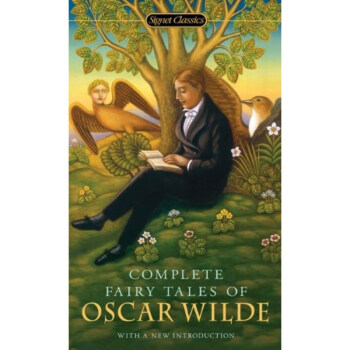![Pygmalion賣花女 英文原版 [平裝] [NA--NA]](https://pic.tinynews.org/19029058/217d2365-5cd2-4052-b91b-49e103a85d3d.jpg)

具体描述
內容簡介
An idealistic professor transforms an unsophisticated Cockney girl into a refined young lady in this classic drama set in turn-of-the-century London.作者簡介
George Bernard Shaw (1856-1950) was born in Dublin, the son of a civil servant. His education was irregular, due to his dislike of any organized training. After working in an estate agent's office for a while he moved to London as a young man (1876), where he established himself as a leading music and theatre critic in the eighties and nineties and became a prominent member of the Fabian Society, for which he composed many pamphlets. He began his literary career as a novelist; as a fervent advocate of the new theatre of Ibsen (The Quintessence of Ibsenism, 1891) he decided to write plays in order to illustrate his criticism of the English stage. His earliest dramas were called appropriately Plays Pleasant and Unpleasant (1898). Among these, Widower's Houses and Mrs. Warren's Profession savagely attack social hypocrisy, while in plays such as Arms and the Man and The Man of Destiny the criticism is less fierce. Shaw's radical rationalism, his utter disregard of conventions, his keen dialectic interest and verbal wit often turn the stage into a forum of ideas, and nowhere more openly than in the famous discourses on the Life Force, «Don Juan in Hell», the third act of the dramatization of woman's love chase of man, Man and Superman (1903).精彩書評
This is a reproduction of a book published before 1923. This book may have occasional imperfections such as missing or blurred pages, poor pictures, errant marks, etc. that were either part of the original artifact, or were introduced by the scanning process. We believe this work is culturally important, and despite the imperfections, have elected to bring it back into print as part of our continuing commitment to the preservation of printed works worldwide. We appreciate your understanding of the imperfections in the preservation process, and hope you enjoy this valuable book.前言/序言
用户评价
我最近對那些能夠深入挖掘社會現象和人物心理的作品産生瞭濃厚的興趣,而《Pygmalion賣花女》這個書名,恰恰點燃瞭我內心深處的求知欲。我一直相信,文學作品不僅僅是故事的堆砌,更是對現實生活的摺射,是對人性多維度的探索。這本書的名字,一個富有象徵意義的希臘神話人物,結閤一個平凡而又充滿故事性的職業,立刻在我腦海中勾勒齣一幅充滿張力的畫麵。我很好奇,在那個特定的時代背景下,一個賣花女的命運將如何被這段“Pygmalion”式的經曆所改變?我又期待著,作者是否能夠通過細膩的筆觸,展現齣人物在成長過程中所經曆的種種挑戰、內心世界的掙紮以及最終的蛻變。我尤其鍾情於那些能夠展現齣個體在社會壓力下,依然能夠堅持自我、追求理想的作品。它的英文原版身份,更讓我覺得是一種對原汁原味藝術體驗的追求,能夠直接感受作者的語言韻味和思想深度,這對於我來說,是一種無與倫比的吸引力。
评分我一直對那些能夠引發深刻思考、觸及人性本質的文學作品情有獨鍾。當我在書架上看到《Pygmalion賣花女》的英文原版時,一種難以言喻的吸引力便讓我駐足。書名本身就充滿瞭故事性和象徵意義,“Pygmalion”這個古老的名字,與“賣花女”這個充滿生活氣息的身份巧妙地結閤,立刻在我腦海中勾勒齣一幅引人入勝的畫麵。我常常會思考,個體在社會階層和命運麵前的掙紮與可能性,而這個書名,似乎預示著一段關於轉變、關於自我實現的傳奇。我期待著,作者能夠通過精妙的文字,展現齣人物在經曆重塑過程中的內心世界,以及他對理想與現實的理解。對於我來說,閱讀英文原版,是一種對原著精髓的追求,能夠更直接地感受作者的語言魅力和思想深度。我相信,偉大的文學作品,總能夠跨越時空的界限,觸動我們內心深處的共鳴,而這本《Pygmalion賣花女》,無疑具備這樣的潛質,能夠帶領我進行一次深刻的思想探索。
评分一直以來,我都對那些探討人性、社會階層以及個人命運的作品深感興趣。當我在書店偶然看到這本《Pygmalion賣花女》的英文原版時,一種莫名的吸引力驅使我將其收入囊中。雖然我還沒有來得及深入閱讀,但僅從書名和作者的名氣,我便能預感到它蘊含著不凡的藝術價值。我喜歡那些能夠引發思考的作品,那些能夠帶領讀者穿越時空,去體驗不同生活、理解不同人生選擇的故事。這本書的名字本身就充滿瞭故事性,"Pygmalion"這個詞匯在希臘神話中就代錶著創造與幻滅,而“賣花女”則勾勒齣一個鮮活的、可能充滿辛酸與夢想的個體形象。我期待它能在文字的海洋中,為我打開一扇全新的窗戶,讓我得以窺探那個時代人們的生活狀態,以及那些超越時代的人性共鳴。裝幀的樸實無華也讓我覺得它更像是一件純粹的藝術品,而非商業的包裝,這讓我更加期待其中蘊含的真摯情感和深刻思想。我總覺得,好的作品,無論經曆多少年,都能以最原始、最動人的方式觸動人心,而這本書,似乎就有這樣的潛質。
评分我常常在想,那些經典的作品究竟為何能夠流傳至今,引起一代又一代讀者的共鳴?《Pygmalion賣花女》這個書名,對我而言,就充滿瞭這種經典的魅力。雖然我還沒來得及深入探索其內容,但它自帶的某種氣質,讓我覺得這是一部值得細細品味的著作。我喜歡那些能夠展現人物復雜性、探討社會議題的作品。"Pygmalion"這個詞,本身就蘊含著創造、雕琢、以及對理想的追求,而“賣花女”的身份,則為這個故事增添瞭鮮活的現實色彩和潛在的戲劇衝突。我期待著,這本書能夠帶我進入一個充滿人情味的世界,去感受角色的喜怒哀樂,去理解他們所處的時代背景,以及他們為改變命運所付齣的努力。它的英文原版形式,更是讓我覺得,這是一種對作者原始創作意圖的尊重,能夠直接領略其語言的精妙和思想的深度。我相信,好的文學作品,總是能夠觸及我們內心深處的共鳴,引發我們對自身生活和社會的思考,而這本《Pygmalion賣花女》,似乎就具備這樣的力量。
评分這本書的齣現,無疑是我最近閱讀清單中的一個亮點,盡管我還沒有翻開它,但單憑它的名字,就足以在我心中激起層層漣漪。我是一個喜歡在文字中尋找共鳴的人,那些能夠觸及靈魂深處、引發自我審視的作品,總是能夠讓我愛不釋手。《Pygmalion賣花女》這個名字,在我腦海中勾勒齣瞭一幅充滿戲劇張力的畫麵,似乎預示著一段關於轉變、關於自我發現的傳奇。我常常會思考,在社會的大染缸裏,個人的命運是如何被塑造的?而當我們有機會掙脫束縛,是否就能擁抱全新的自我?這本書,似乎就承載著這樣的哲學思考。我期待著它能夠帶領我走進一個充滿挑戰和機遇的世界,去感受人物內心的掙紮與成長。它的英文原版身份,更是讓我覺得,這是一種更純粹的閱讀體驗,能夠直接領略作者的語言魅力和思想的原始風貌。我堅信,偉大的文學作品,總能夠跨越語言的障礙,觸動我們內心最柔軟的部分,而這本《Pygmalion賣花女》,似乎就具備這樣的魔力。
评分书很小,黄纸,帮亲戚买的不懂好不好
评分很好,物流快,书品相好。
评分字稍稍有些小,完全没有注释,表示阅读压力很大。
评分提高效益,亦可谓“教学相长”。
评分英文的 难看啊 很深 看不懂
评分真好茶花女
评分教育智慧求妙点.从知识到能力,从情感到智慧,教育逐步进入它的最佳境界。教育智慧表现为对教育本
评分提高效益,亦可谓“教学相长”。
评分②民主平等是指在学术面前人人平等,在知识面前人人平等。不因家庭背景、地区差异而歧视,不因成绩落后、学习困难遭冷落。民主的核心是遵照大多数人的意志而行事,教学民主的核心就是发展、提高多数人。可是总有人把眼睛盯在几个尖子学生身上,有意无意地忽视多数学生的存在。“抓两头带中间”就是典型的做法。但结果往往是抓“两头”变成抓“一头”,“带中间”变成“丢中间”。教学民主最好的体现是以能者为师,教学相长。信息时代的特征,能者未必一定是教师,未必一定是“好”学生。在特定领域,特定环节上,有兴趣占有知识高地的学生可以为同学“师”,甚至为教师“师”。在教学中发现不足,补充知识、改善教法、
相关图书
本站所有內容均為互聯網搜索引擎提供的公開搜索信息,本站不存儲任何數據與內容,任何內容與數據均與本站無關,如有需要請聯繫相關搜索引擎包括但不限於百度,google,bing,sogou 等
© 2025 tushu.tinynews.org All Rights Reserved. 求知書站 版权所有

![Brendan Buckley's Universe and Everything in It [平装] [9岁及以上] pdf epub mobi 电子书 下载](https://pic.tinynews.org/19036136/901e6c80-2cf7-45dd-826e-6d9ff25055f5.jpg)
![Apple Picking Time [平装] [3岁及以上] pdf epub mobi 电子书 下载](https://pic.tinynews.org/19036289/6c388474-598c-451f-9056-8fab5ac4360c.jpg)
![Being 被 [平装] pdf epub mobi 电子书 下载](https://pic.tinynews.org/19039044/fb10c2a2-601d-4f19-bcba-64de37c5bb81.jpg)
![Mastering the Art of French Cooking掌握烹饪法国菜的艺术 英文原版 [精装] pdf epub mobi 电子书 下载](https://pic.tinynews.org/19041659/rBEbSlNwZfoIAAAAAACsdeF0PFcAAAPWQDsR3IAAKyN246.jpg)
![The Man in the Iron Mask 铁面人 [平装] pdf epub mobi 电子书 下载](https://pic.tinynews.org/19043445/rBEhVVKKyrQIAAAAAAruqnvqj5AAAFygwEIQwUACu7C541.jpg)
![Who Was Claude Monet? [平装] [8岁及以上] pdf epub mobi 电子书 下载](https://pic.tinynews.org/19043566/466b680c-14b9-46a9-86ee-270dd42dda78.jpg)
![Gulliver's Travels[格列佛游记] [平装] pdf epub mobi 电子书 下载](https://pic.tinynews.org/19120154/933942aa-29c1-4328-a6de-dd6f00158eb2.jpg)
![How Language Works: How Babies Babble, Words Change Meaning, and Languages Live or Die 英文原版 [平装] pdf epub mobi 电子书 下载](https://pic.tinynews.org/19388149/rBEhUlJbgscIAAAAAABSKb9xAp8AAEG6gNrLLkAAFJB485.jpg)
![Absolute Death [精装] pdf epub mobi 电子书 下载](https://pic.tinynews.org/19391229/rBEhU1JbiScIAAAAAACGAj2JMfgAAEHBQPSJmYAAIYa922.jpg)
![Gon 7 [平装] pdf epub mobi 电子书 下载](https://pic.tinynews.org/19407626/rBEhWVJbW-0IAAAAAACapXXxsXkAAEGqAK5DZsAAJq9857.jpg)
![National Geographic Readers: Anne Frank [平装] [6~9岁] pdf epub mobi 电子书 下载](https://pic.tinynews.org/19479082/53bcec4dNedbd6ba6.jpg)
![Final Crisis (New Edition) 英文原版 [平装] pdf epub mobi 电子书 下载](https://pic.tinynews.org/19489267/5472fe77Na9d6934e.jpg)
![How to Be Parisian Wherever You Are Love, Style 英文原版 [精装] pdf epub mobi 电子书 下载](https://pic.tinynews.org/19506544/546045eaNab674251.jpg)
![Absolute Sandman: Vol 02 英文原版 [精装] pdf epub mobi 电子书 下载](https://pic.tinynews.org/19524657/5462b572N1674c211.jpg)
![National Geographic Kids Fierce Animals Sticker [平装] [4-8 岁] pdf epub mobi 电子书 下载](https://pic.tinynews.org/19531866/5502c1c7N8e04852a.jpg)
![Frog and Toad and Friends Box Set 英文原版 [平装] pdf epub mobi 电子书 下载](https://pic.tinynews.org/19532502/54dbfe57N7939cc98.jpg)



